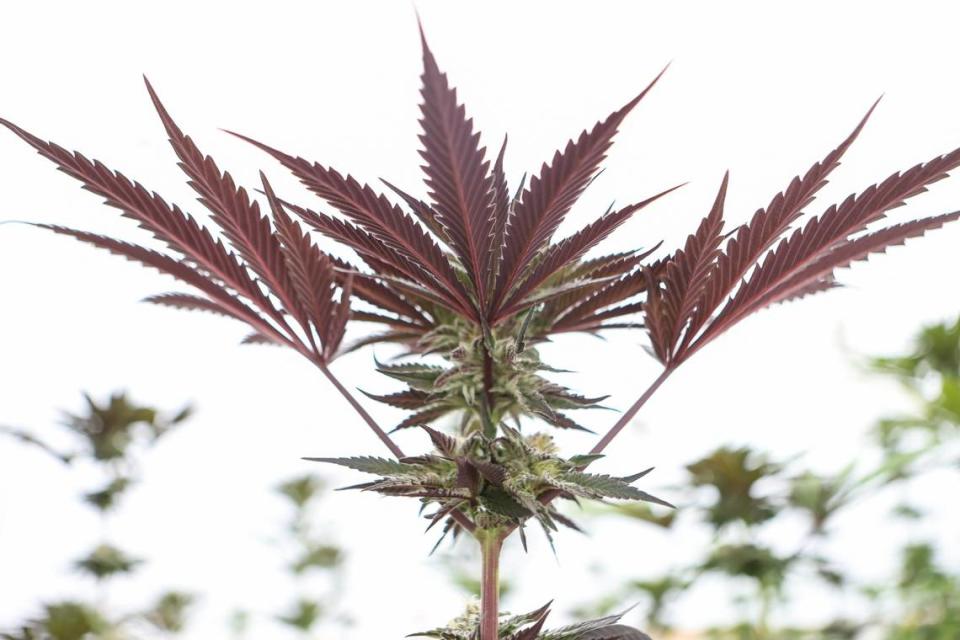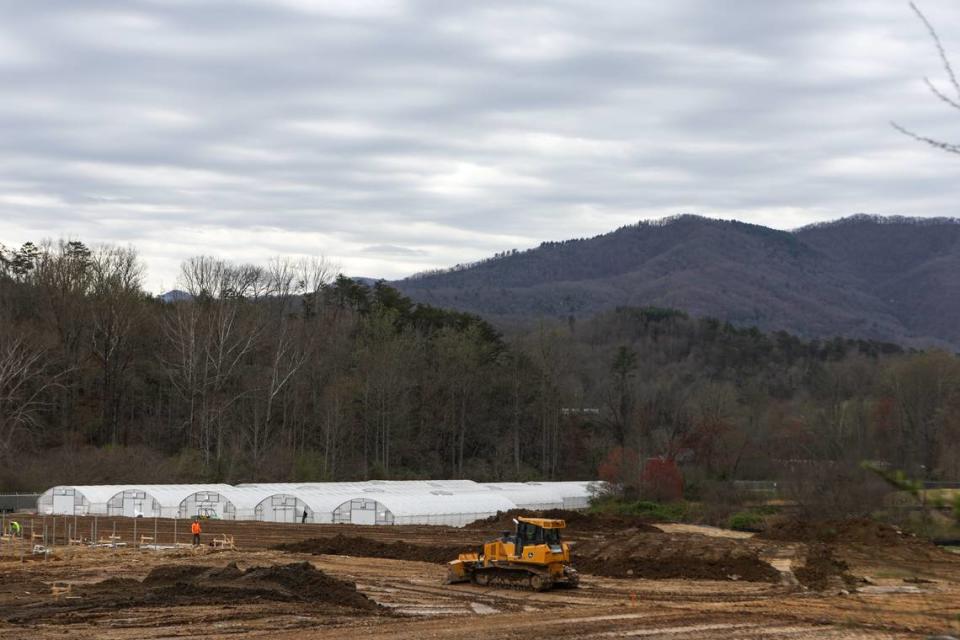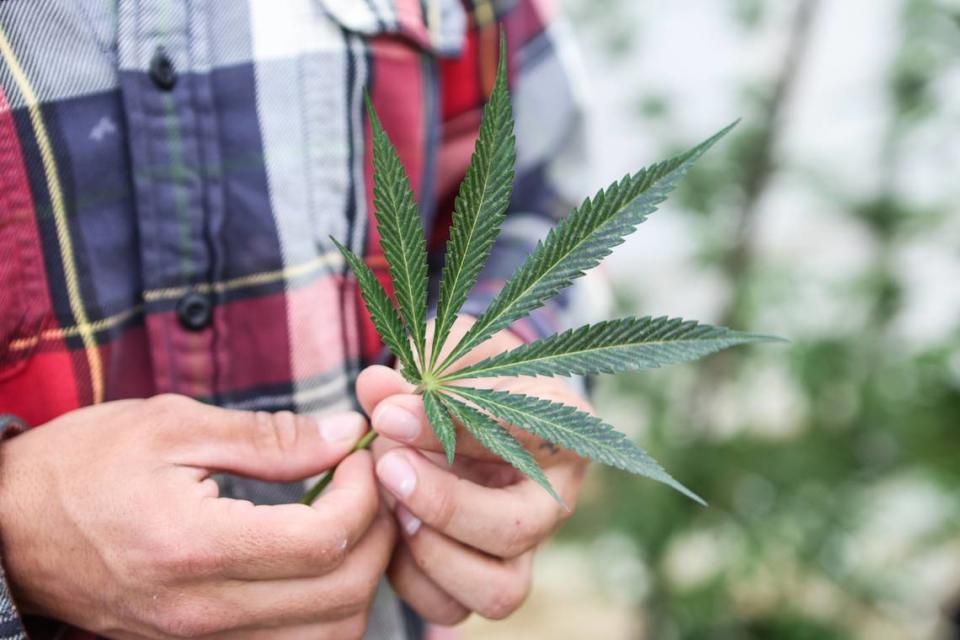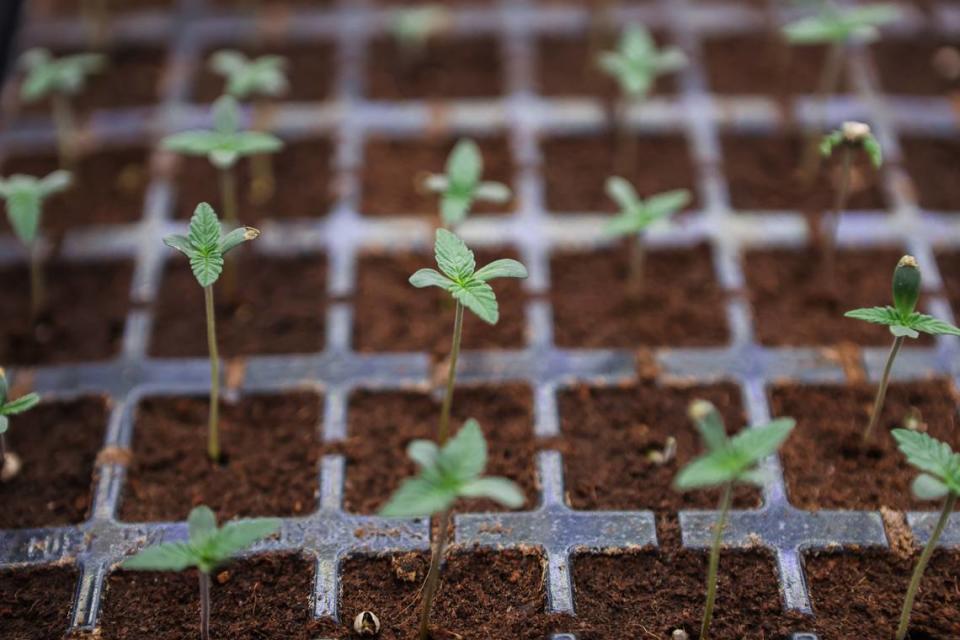Cherokee OK marijuana sales to any NC adult at new superstore. Here’s when to buy some
The Cherokee tribal council on Thursday voted to expand sales at the tribe’s new medical marijuana dispensary in the North Carolina mountains to any adult in the state.
The dispensary is the first and only place people can buy cannabis legally in North Carolina. Until Thursday’s vote, buyers needed a medical cannabis card from the tribe’s Cannabis Control Board. Starting as soon as August, that will no longer be the case.
The vote came nine months after Eastern Band of Cherokee Indians members approved a referendum by over 70% to allow adult use of cannabis on their 57,000-acre Qualla Boundary and other lands.
Tribal leaders spent months crafting the required adult-use ordinance that the council approved Thursday. The ordinance allows any adult, including North Carolina residents and others, to buy products at the tribe’s cannabis superstore that opened April 20 near Harrah’s Cherokee Casino Resort.

The tribe opened the dispensary in its renovated former bingo hall at U.S. 19 and Bingo Loop Road, 46 miles west of Asheville in the Great Smoky Mountains.
The ordinance legalizes recreational use of marijuana on the Qualla Boundary and allows Qualla Enterprises to sell marijuana at the dispensary to any adult recreational user.
The packed audience at Thursday’s tribal council meeting broke out in applause after the vote, according to a livestream of the meeting.

When can I buy Cherokee marijuana?
Adult-use sales at the Great Smoky Cannabis Company dispensary will open first to adult tribal members, likely in July, said Forrest Parker, general manager of Qualla Enterprises, the tribe’s cannabis subsidiary.

North Carolina residents 21 and older can buy products beginning in early to mid-August, although no specific date has been set, Parker said at a recent council work session where council members finalized language in the adult-use ordinance.
Right now, even having a medical cannabis card doesn’t entitle a person to take marijuana bought at the dispensary off tribal lands, according to the Cherokee Cannabis Control Board.
That’s because cannabis remains illegal under federal and North Carolina law, control board officials said.
The store opened with at least 34,000 “fully tested, certified products,” Parker has said.
At a May 30 council work session, Parker said Qualla has enough product to meet the expected increase in demand this summer when the dispensary opens to adult buyers. “Our operations are set up for this,” he said.
“Yes, there is concern,” Parker said about the ability to replenish the supply of some products at the dispensary. “We may run out of certain flower at a certain time, but we’ll work closely to close those gaps if and when they do happen.”
On an exclusive tour by The Charlotte Observer of the tribe’s cannabis operation in March 2023, Parker said the tribe’s cannabis market would benefit “the 10.4 million residents of North Carolina.”
Marijuana revenue estimates
Before the Sept. 7 vote by tribal members to approve adult use of marijuana on tribal land, the tribe had already approved the use and controlled sale of medical cannabis.

The dispensary could generate nearly $206 million in gross sales revenues in its first year if limited to medical patients, compared with $385 million if product is available to all adult users, The Charlotte Observer previously reported.
The figures were released by Qualla Enterprises last year.
In its fifth year, the dispensary could generate a respective $578 million and $843 million in gross sales revenues, according to the estimate.
On the Observer’s tour of the tribe’s grow operation last year, Parker said he was proud of the Eastern Band of Cherokee Indians for entering the cannabis world and providing for a better future.
“I’m very proud of us utilizing our sovereignty to do things such as this,” he said, “that provide opportunity, medicine, economic diversity to our people in a rural community that much, much needs it.”

